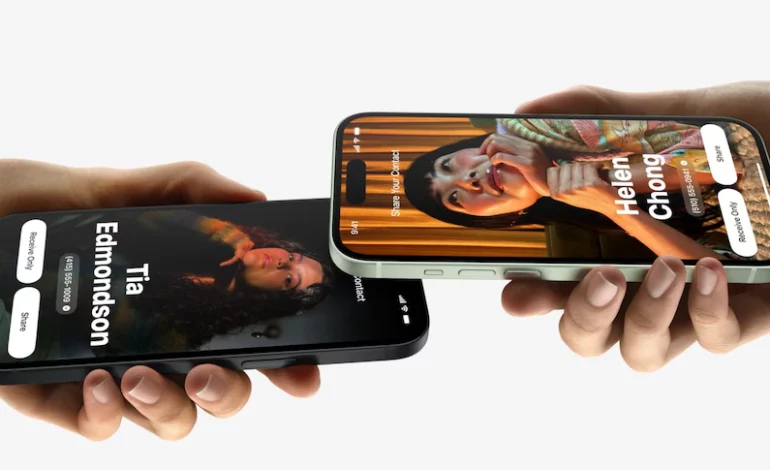Apple has unveiled the iPhone 15, but its features were known for months. Here’s how tech giants are trying to stop leaks

Apple has announced the iPhone 15, following a flurry of leaks from within the famously secretive company and its huge supply chain.
People have been sharing leaked details about Apple’s new phones for months — including a Melbourne man who made headlines after posting photos of devices resembling the new models weeks before their official announcement.
Such leaks aren’t as incomprehensible as the time an iPhone prototype was found in a California bar, but they have become increasingly relentless — and every major technology company is trying to stop them.
Let’s take a look at how new product details are leaked, the impact it can have, and what some of the world’s most valuable companies are doing to keep their work a secret.
How do unreleased products leak?
Leaks can come in many forms, including things like:
- Blurry photos of parts and prototypes, taken by factory workers
- Files leaked by case manufacturers featuring new designs
- Anonymous claims on social media which sometimes turn out to be true
There are also dummy models, which are produced to look almost exactly like a working device but without any internal components.
Melbourne man and longtime leaker Sonny Dickson shared photos of largely accurate dummy models of the iPhone 15 and 15 Pro in August, weeks before Apple’s official announcement.
Mr Dickson declined to comment about the leak when contacted by ABC News, and another anonymous leaker said they would “never” speak to a journalist.
Matt Pepper from the University of Wollongong’s Centre for Supply Chain Research says devices such as smartphones have complex supply chains, and leaks can occur at any stage of that process — from design to manufacturing, assembly or publicity.
“It could start with things such as large orders for components being placed, or certain patents being filed for specific components,” he says.
“It could be a mistake by an employee — it could be promotional material being released prematurely, or even a conversation with a colleague that’s later quoted to a friend.”
Even artificial intelligence has become a potential source of leaks. In May 2023, Samsung banned its staff from using AI tools such as ChatGPT after discovering an employee had uploaded sensitive code to the platform.
Mr Pepper says that most often leaks come in the form of photos from factories and direct quotes from insiders. These stem from huge supply chains which are heavily scrutinised by the media and members of the technology industry — and they can have huge ramifications.
Apple held a meeting about leaks, which leaked
In 2017, an hour-long internal briefing at Apple about stopping leaks within the company ended up leaking.
The Outline reported that during the meeting an Apple employee admitted leaks had occurred in the company’s supply chain.
“In some cases we’ve seen up to a year’s worth of salary being rewarded for stealing product out of the factory,” the employee reportedly said.
An employee was also said to have confirmed that leaks were increasingly coming from Apple’s own offices.
“[2016] was the first year that Apple leaked more than the supply chain,” they reportedly said. “More stuff came out of Apple … than all of our supply chain combined.”
A brief history of major Apple leaks
Complex supply chains can mean ‘an erosion of control’
Apple has more than 3 million people in its supply chain, which is spread across thousands of businesses in more than 50 countries, according to its latest supply-chain report.
Mr Pepper says a larger and more complex supply chain can mean there is more risk involved, which can make it harder to prevent leaks.
“It sounds dramatic, but there’s an erosion of control because of the decreased transparency,” he says. “And not just for the components or the products, but the accessories too, which are also a huge market.”
He says companies that act as suppliers to major tech firms may also sub-contract some of their work, which adds “another layer of opacity”.
Apple’s supplier code of conduct states that the company expects suppliers to “manage technology and know-how in a manner that protects intellectual property rights”.
Mr Pepper says if such rules aren’t followed and a company drops a supplier, it can mean a major hit to that supplier’s bottom line, and can damage the relationship between the two organisations.
What impact can leaks have on companies and consumers?
Mr Pepper says leaks can be harmful for companies because they can allow competitors to study public reaction and use it “to inform their own strategic decisions”, but they can also be helpful by building hype or expectation.
Take Apple’s Vision Pro headset which was announced earlier this year, for example.
“It was rumoured for a long time, so the anticipation builds up. If it delivers, and it’s this amazing product, then everything is OK,” Mr Pepper says. “But if it doesn’t, then consumers think, ‘Well, this isn’t really what we expected.'”
Mr Pepper says leaks about upcoming devices can also lead to slower sales of current models.
In 2017, Apple CEO Tim Cook reportedly blamed lagging iPhone sales on “earlier and much more frequent reports about future iPhones”. He is also said to have told investors: “Keeping stuff confidential is the bane of my existence.”
Apple isn’t the only major tech company routinely impacted by leaks, either. The likes of Google and Samsung have also had product announcements spoiled by major leaks shortly before a launch event.
In fact, leaks are now so frequent that they inspire parodies on social media.
Do companies ever leak things intentionally?
John Martellaro, a former Apple senior marketing manager, wrote in 2010 that he had been asked to engage in controlled leaks while working for the tech giant.
“The company has been doing that for years, and it helps preserve Apple’s consistent, official reputation for never talking about unreleased products,” he said.
Mr Martellaro said controlled leaks were “almost always the solution to a problem” and not attempts to manipulate Apple’s share price.
Mr Pepper says intentional leaks can be used to “test the waters” for an upcoming product by studying the reactions of markets, competitors and even consumers — but it comes with risks.
“If it’s intentional, there’s a component of trust for the consumer. Are we just being influenced by certain information being released to the market, or the rumours that are building?”
How do companies prevent leaks and catch leakers?
The largest tech companies have teams that try to prevent leaks and identify culprits if leaks do occur.
The Apple briefing which leaked in 2017 reportedly outlined how the company “employs an undisclosed number of investigators around the world to prevent information from reaching competitors, counterfeiters, and the press”, while also hunting down the sources of leaks.
Across the industry, factory workers may be screened, and teams in certain companies might not be made aware of what other teams in their organisation are working on. This is done “to limit the amount of information that could be leaked and to mitigate risks”, Mr Pepper says.
More research is also going into how companies can not only prevent leaks, but recover from them. Mr Pepper says tools such as QR codes and digital watermarks are being used to help trace information sharing.
In 2011, Bloomberg reported that Apple had placed monitors in some boxes at its Chinese factories in order to track the movement of parts.
The leaked Apple briefing from 2017 also reportedly mentioned that the company had bought back thousands of phone enclosures which appeared in markets in China, in order to prevent them from leaking further.
Companies have also been accused of giving false information to employees they suspect of leaking in order to flush them out. A purported leaker claimed earlier this year that Apple had fired their sister, who worked for the company, using this method.
There have also been allegations of tech companies placing informants within the leaks community, and reports of employees being encouraged to dob in colleagues who they suspect of leaking.
Google has previously faced a lawsuit from an employee who reportedly accused the company of running an internal “spying program” that relied on workers reporting colleagues who might have leaked confidential information, The Information reported.
Leakers have also reportedly received cease and desist letters from lawyers representing tech firms.
As media coverage around product leaks continues, Mr Pepper says companies may be inadvertently escalating the situation by trying increasingly hard to prevent leaks.
“In my opinion, the harder tech supply chains clamp down on preventing leaks, the more lucrative it becomes for the tech watchers.”
SOURCE: ABCNEWS






